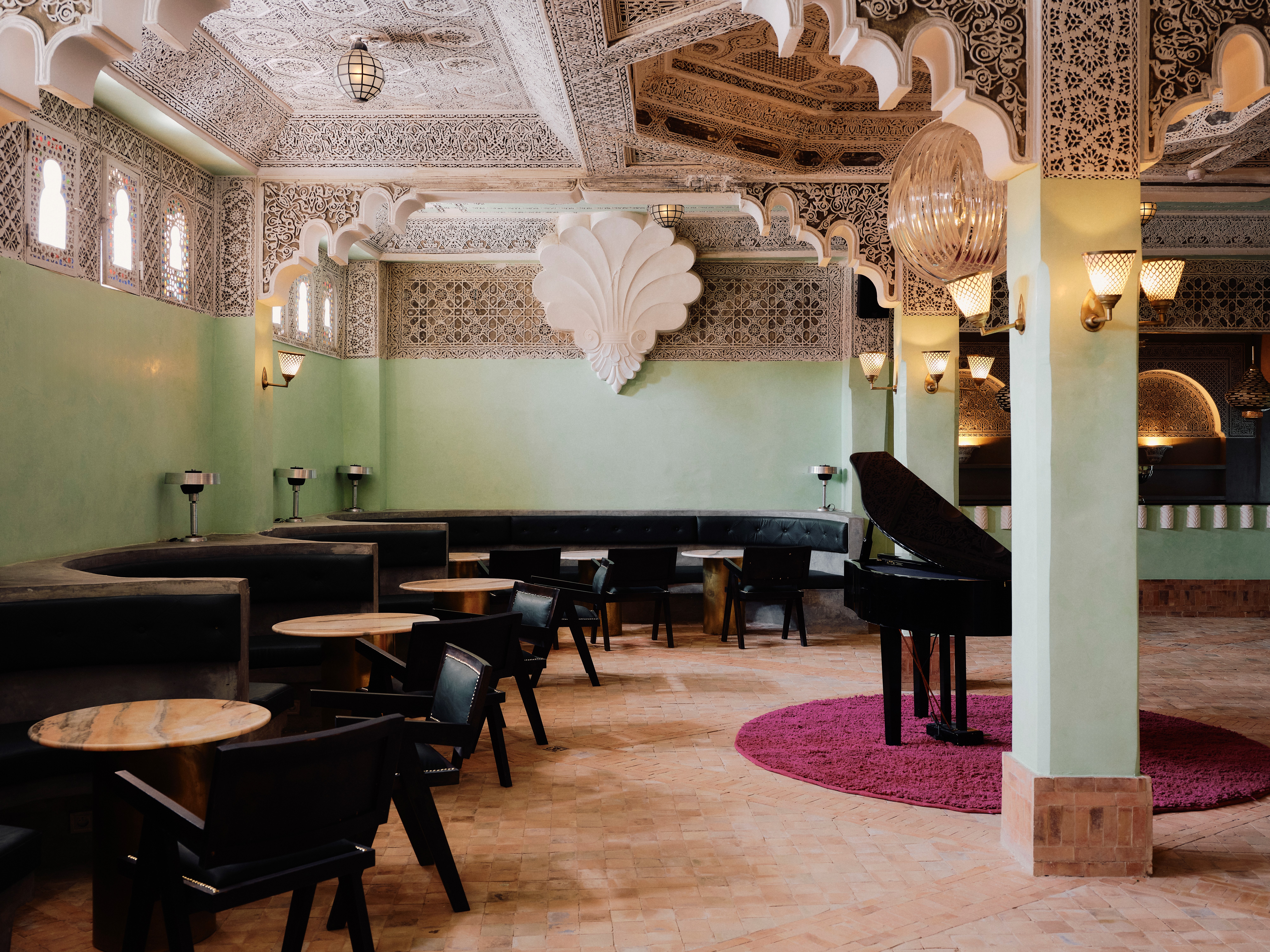
If Marrakech’s Jemaa el Fna square is the city’s heartbeat, then DaDa, the new multilevel art-meets-dining hub in the Medina, is an extra beat, adding a rush of colour, sound, and flavour. Set in a reimagined concrete modernist shell that once housed a bus station, DaDa is the latest creation from restaurateur Kamal Laftimi, known for his ventures such as the Pétanque Social Club. For Laftimi, DaDa is more than just a new venue – it’s personal. His grandfather once worked as a bus driver at the very spot, and DaDa is as much an homage to Marrakech’s past as it is a vision of its future.
DaDa Marrakech

‘Dada is a restaurant and artistic project embedded in the Jamaa el Fna ecosystem, offering a fresh perspective on its already vibrant, dynamic energy,’ Laftimi explains. The venue is an audacious ‘hybrid space’, where guests can eat, drink, dance, and discover art from both local and international talents. Aiming to become a crossroads for cultural exchange, DaDa is part art gallery, part bookshop, and part culinary playground, ‘reflecting our vision of Marrakech – open, rooted, surprising, and highly creative’.


Each floor of DaDa reveals a new chapter in the story Laftimi is telling. The ground floor opens into a sleek restaurant and bar, where modern Moroccan cuisine mingles with international flair. But, as Laftimi would say, DaDa’s culinary aspect is just one dimension of its appeal. Guests are invited to roam, with each level offering a distinct experience. From the art gallery that showcases pieces from local and global artists to a bookshop stocked with carefully curated titles, there’s a sense that DaDa is creating a mini-ecosystem of its own, one that redefines what hospitality means in the Medina.


DaDa’s design, by longtime Laftimi collaborator Anne Favier, draws heavily from the vibrant Jemaa el Fna below. ‘Anne incorporated concrete, glass, and mirrors to craft a space that is both raw and contemporary,’ Laftimi says. ‘In the spirit of Jemaa el Fna, each area in DaDa tells its own story, much like the tales narrated by the storytellers in the square below.’ Favier’s design weaves Marrakchi tradition into a modern aesthetic, using touches like the iconic orange – a symbol of the square – as a motif throughout. Concrete seating in the shape of oranges graces the main façade, while zellige tiles and vibrant orange hues saturate each level. There’s a storytelling quality to each room: the lighting fixtures twist like the movements of Jemaa el Fna’s snake charmers, and the geometric shapes in Tadelakt and intricate zellige reflect a fusion of Moroccan craftsmanship and contemporary lines.

‘Dada evolved naturally from my previous projects,’ Laftimi says, ‘driven by a sense that the future of Marrakech must embrace a strong cultural and artistic dimension.’ Upstairs, visitors will find a factory where master artisans from the city collaborate with designers to create DaDa’s exclusive furniture and decor, making it a tribute to both tradition and innovation. In the downstairs bar, the walls are adorned with a woven masterpiece by the Lahandira family, renowned for their Moroccan rugs, grounding the modernity of the space with a sense of history.
DaDa is located at 2 place Jemaa El Fna, 40000, Morocco, dadamarrakech.com/








